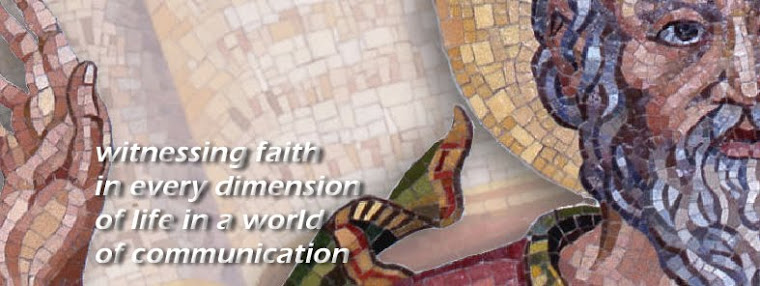
Paul, said the Holy Father, remains the "'Master of the Gentiles' who wished to carry the message of the risen Christ to all men and women, because Christ has known and loved them all, He died and rose again for them all". In his Letter to the Romans the Apostle makes it clear "that with Christ a new way of venerating God, a new form of worship, has begun. ... It is no longer things that are offered to God, it is our very lives that must become praise of God".
This Letter uses two decisive words, "transformation and renewal", said the Pope and he went on: "We must become new men and new women, transformed in a new way of existence. The world is always seeking novelty because, quite rightly, it is always discontented with concrete reality. Paul tells us that the world cannot be renewed without new men and women. ... The Apostle exhorts us to non-conformity. In this Letter he tells us not to succumb to the blueprint of the current age".
Paul explains this process more clearly "saying that we become new if we transform our way of thinking" and that "such renewal must be complete. ... The mind of old man, the common way of thinking, generally aims at possession, wellbeing, influence, success, fame and so on. But this has too limited a scope; in the final analysis, it is the 'self' that remains at the centre of the world. We must learn to think more deeply, ... we must learn to understand God's will so that it moulds our own will, so that we ourselves want what God wants, so that we recognise that what God wants is beautiful and good".
In his Letter to the Ephesians, the Apostle says that "with Christ we must reach adulthood, mature humanity. ... Paul wants Christians to have 'responsible' faith, 'adult' faith. The phrase 'adult faith' has become a common slogan over recent decades. It is often understood as the attitude of those who no longer listen to the Church and her pastors, but autonomously choose what they wish to believe and not to believe: a sort of 'do-it-yourself' faith. This is also presented as the 'courage' to go against the Magisterium of the Church. The truth, however, is that it requires no courage because one is always certain of garnering public sympathy.
"What does require courage", he added, "is to adhere to the faith of the Church even if this contradicts the blueprint of the modern world. It is the 'non-conformity' of faith that Paul calls 'adult faith'. What he considers childlike is to charge after all the winds and currents of the age".
This Letter uses two decisive words, "transformation and renewal", said the Pope and he went on: "We must become new men and new women, transformed in a new way of existence. The world is always seeking novelty because, quite rightly, it is always discontented with concrete reality. Paul tells us that the world cannot be renewed without new men and women. ... The Apostle exhorts us to non-conformity. In this Letter he tells us not to succumb to the blueprint of the current age".
Paul explains this process more clearly "saying that we become new if we transform our way of thinking" and that "such renewal must be complete. ... The mind of old man, the common way of thinking, generally aims at possession, wellbeing, influence, success, fame and so on. But this has too limited a scope; in the final analysis, it is the 'self' that remains at the centre of the world. We must learn to think more deeply, ... we must learn to understand God's will so that it moulds our own will, so that we ourselves want what God wants, so that we recognise that what God wants is beautiful and good".
In his Letter to the Ephesians, the Apostle says that "with Christ we must reach adulthood, mature humanity. ... Paul wants Christians to have 'responsible' faith, 'adult' faith. The phrase 'adult faith' has become a common slogan over recent decades. It is often understood as the attitude of those who no longer listen to the Church and her pastors, but autonomously choose what they wish to believe and not to believe: a sort of 'do-it-yourself' faith. This is also presented as the 'courage' to go against the Magisterium of the Church. The truth, however, is that it requires no courage because one is always certain of garnering public sympathy.
"What does require courage", he added, "is to adhere to the faith of the Church even if this contradicts the blueprint of the modern world. It is the 'non-conformity' of faith that Paul calls 'adult faith'. What he considers childlike is to charge after all the winds and currents of the age".

1 comment:
"The phrase 'adult faith' has become a common slogan over recent decades. It is often understood as the attitude of those who no longer listen to the Church and her pastors, but autonomously choose what they wish to believe and not to believe: a sort of 'do-it-yourself' faith. This is also presented as the 'courage' to go against the Magisterium of the Church. The truth, however, is that it requires no courage because one is always certain of garnering public sympathy."
Love this paragraph! Even though the phrase "adult faith" brings up good connotations to me, and I never thought of it in this light. But this idea of the "bravery" of dissent being a sham is very much on the mark! The garnering of public sympathy for one thing or another has become a national pasttime in the U.S., and we are all the poorer for it.
Rae
Post a Comment